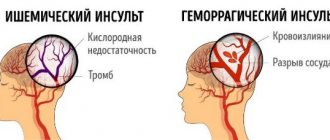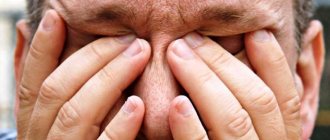In modern reality, a person’s mental organization is often tested. Sometimes there is so much stress in life that we barely have time to adapt to constantly changing circumstances. Some events actually change your understanding of the world and make you endlessly doubt yourself and your existing capabilities. The negative impact of surrounding factors can be so strong that it knocks you out of your usual rut, deprives you of peace, sleep, and confidence in the future. In this regard, a reasonable question arises: is it possible to restore the psyche and how to do it correctly? Actually it is possible. This is a completely feasible task, which is almost always possible to cope with on your own. You will need to put in some effort and not expect too quick results.
Sports activities
Surprisingly, movement helps in many ways to cope with the destructive effects of stress. That is why it is recommended that when you are experiencing strong feelings, do not sit in one place, but try to move as much as possible. You can immediately start exercising, running, or cleaning the house. The main thing is that you can feel better. Movement promotes the production of positive hormones. This is how new strength appears to move on with life and make responsible decisions. Playing sports is an ideal solution for those who are used to taking full responsibility for what is happening.
Healthy food for nerves - eat and relax!
Nutritionists have created a special diet for those who want to stop worrying and start living. Without the substances and microelements necessary for a person, which he receives at the dinner table, nerve cells cannot cope with their tasks fully.
Lack of magnesium, potassium, calcium, iron, phosphorus, iodine weakens the nervous system and its interaction with internal organs.
Magnesium is a necessary element responsible for muscle relaxation, transmission and receipt of nerve impulses. His sources:
- mineral water;
- eggs;
- nuts;
- beans;
- wheat bran.
Eat oatmeal, pearl barley, millet, and buckwheat more often. These cereals contain large reserves of magnesium.
Phosphorus is a trace element that reduces muscle tension and tones the nervous system. It is found in organ meats, milk, beans and cereals.
Calcium is a regulator of neuromuscular impulses. Despite all its importance for the strength of bones and teeth, the nerves need it no less. And sometimes even more. In such cases, the body “removes” it from the bones, directing it to where it is most needed. Sources of calcium:
- dairy products;
- cabbage of all varieties and spinach;
- nuts;
- poppy and sesame seeds;
- soybeans and wheat.
Potassium – promotes the coordinated functioning of muscles and nerves, serves as a prevention of depression and nervous breakdowns. The lack of potassium is compensated for by enriching your table with plant and dairy products, as well as lean varieties of meat and fish.
- vegetables and fruits (cucumbers, tomatoes, pumpkin, cabbage, melons, watermelons, bananas);
- dried fruits (figs, raisins, prunes);
- cereals (wheat flour and bran, rye bread, oatmeal and buckwheat);
- nuts (walnuts, pine, peanuts, almonds);
- meat and fish (beef, rabbit, tuna, flounder, cod).
Iron – ensures proper functioning of the thyroid gland, is responsible for normal metabolism and the formation of nerve fibers. There is a lot of iron in meat and liver. Any meat is suitable, and the darker it is, the more iron it contains.
The following products are rich in this element:
- river fish, sea fish, seafood;
- eggs (chicken, duck, quail);
- fruits, dried fruits;
- green vegetables;
- bread and cereals.
Iodine is responsible for the production of thyroid hormones. Lack of the hormone thyroxine causes severe metabolic diseases. Hormonal imbalance means apathy, lethargy, depression, chronic fatigue and irritable weakness. The lack of iodine is compensated by adding seaweed, sea fish and seafood to the diet.
Reputable psychologists believe that various “sour” foods are very beneficial for the nervous system: lemons, apple cider vinegar, sour fruits. Sourness in the mouth is sweet for the nerves.
Foods for the nervous system that make us happy:
Meditation
The usefulness of this activity is truly difficult to overestimate. Meditation aims to bring balance to thoughts and feelings. Anyone who regularly practices Merkabah or Yoga Nidra certainly feels happy. Such a person has every chance of helping himself return to his former state of internal balance. It’s just important not to be lazy and follow your inner voice. When thinking about how to restore your psyche after stress, you should not neglect this opportunity. Meditation actually has a lot to offer, but only if it is practiced regularly.
Taking responsibility
You don't have to wait for someone to help you. It is much more important to feel the presence of internal forces. Each of us has internal resources that it is not a sin to use at some point. Accepting responsibility involves letting go of blame. You also need to forgive yourself for past mistakes and omissions. We feel the presence of internal forces only when we ourselves desire it. Learn to express your feelings openly, without hiding. There is no need to be afraid of appearing weak, unable to cope with basic tasks. Be responsible for your choices. Remember that everything in life can be changed if there is such a desire. The main thing is not to dwell on failures and find the strength to look forward. Any critical situation can be overcome. All problems are actually solvable.
Symptoms
Neurasthenia manifests itself with the following symptoms:
- Excessive irritability even over trifles, short temper, anger, constant dissatisfaction.
- Impatience - the desire to get everything at once, the impossibility of waiting - it literally “kills”.
- Constant feeling of fatigue, weakness.
- Pain in the temples or a sensation of encircling, squeezing pain in the head.
- Lack of ability to concentrate and do one thing for a long time.
- Violation of the sequence of thoughts, general perception of the environment.
Speaking in more detail about the symptoms of asthenoneurotic syndrome, it is more correct to consider the disorder in phases, since the intensity of its manifestation gradually increases. But more often the disease stops at a certain phase, that is, its development does not occur, which is reflected in the diagnosis.
Hypersthenic (excitable) form
This is the initial stage of the disease, which is recorded most often. It is characterized by nervousness, irritability, and excitability.
The patient is unnerved by any, even quiet, sounds (creaking and light knocking of the door, whispering, clock ticking, dripping water, etc.), bright light, the presence of people nearby and their movement. The most insignificant reason causes an outburst of emotions, uncontrollable irritation or even anger. Without realizing the reasons for aggression, a person can insult or offend someone.
The patient is impatient, strives to do several things at once, fusses, but his performance leaves much to be desired. It is not weakness or rapid fatigue that is to blame for this, but a problem with concentration and constant distraction.
The sleep pattern is disrupted: the patient is lethargic during the day, and at night he falls asleep with difficulty and sleeps poorly, with nightmares, and often wakes up. Waking up happens either earlier than usual or later.
Constant headaches are called “neurasthenic helmet” - they are compressive and very debilitating. Pain when turning and tilting the head moves along the spine to the back. Mental or physical stress makes them more intense.
Irritable weakness (intermediate form)
This phase combines severe irritability with a rapid decrease in the body's resources. In principle, this is a reflection of the clinical essence of the disorder.
Attacks of irritation are the most intense, outbursts of anger instantly turn to a stream of tears, completely unusual for the individual. Such tearfulness arises from the patient’s inability to overcome overwhelming discontent. The mood changes instantly: sometimes gloom, sometimes joy.
The patient is often lethargic, he is not interested in anything, his appetite becomes worse or disappears altogether. Digestion suffers, which is reflected by diarrhea, constipation, belching, and heartburn. The heart rate increases, pulse and blood pressure fluctuate. The limbs become sluggish, instability and so-called floaters appear before the eyes, a rush of heat is replaced by chills, redness of the skin is replaced by pallor. Libido decreases and men may experience problems with erectile function. There may be a frequent urge to urinate.
Hyposthenic (inhibitory) form
At this stage, depression, weakness, gloom, and lethargy are especially pronounced. I don’t want to do anything, but I don’t feel anxiety or melancholy. The patient’s thoughts are focused only on his own unpleasant sensations in the body, and he, assuming that he has some kind of serious illness, turns to doctors, who, naturally, do not find it.
Very often, neurasthenia can be eliminated with good rest. But if this does not help and the disease has gone too far, then you will have to leave yourself in the hands of professionals.
Medications
It is recommended to contact them only as a last resort. You should not train your body to rely solely on chemical components. It is better to look for strength within yourself in order to cope with an unsatisfactory situation. But there are cases of really strong emotional shock. If such a need arises, it is better to start with the weakest drugs. Serious and highly addictive medications should be avoided. They can only do harm. The human nervous system has a unique ability to heal itself. There is no need to suppress it with potent drugs if the problem is not so global. Always leave yourself a backup option that you can use in a pinch.
Vitamins and sedatives for nerves
To strengthen the nervous system and psyche, certain vitamins and medications are needed.
Nerves react very favorably to vitamin B and very poorly to its deficiency.
The most convenient way is to purchase an inexpensive package of Pentovit. This is a blister of 50 tablets that contain the entire group of this vitamin.
B vitamins reduce anxiety, relieve nervous tension, normalize mood and even restore nerve cells. They improve thought processes, strengthen memory, give vigor and efficiency.
Vitamin C copes well with stress and improves mood. Vitamin E calms the nervous system. Vitamin A slows down the aging of nerve cells, improves sleep; its deficiency will lead to lethargy, fatigue and some general lethargy.
Tinctures, herbal mixtures, syrups, drops and tablets are the main forms of sedatives. Their purpose:
- slow down the excitation processes raging in the subcortex (anger, tearfulness, agitation);
- remove vegetative-vascular manifestations (tremor, sweating, rapid heartbeat);
- reduce the reaction to external and internal stimuli, which in turn gives a good, restful sleep.
Typically, sedatives are prescribed for neuroses, neurasthenia, sleep disorders, severe stress and anxiety.
The most proven pharmaceutical products are alcohol tinctures of motherwort, valerian, peony, and lily of the valley. They have a powerful calming effect, relieving muscle tension and are effective in falling asleep.
Novo-Passit syrup is more appropriate for mild forms of neurosis, it makes it easier to fall asleep and soothes.
Valocordin, Valoserdin drops, Zelenin drops reduce central nervous system excitation and have a sedative and hypnotic effect. Also, these remedies remove vegetative-vascular symptoms.
The best tablets that restore the balance between inhibition and excitation of the nervous system are:
- Glycine;
- Afobazole;
- Persen;
- Donormil.
Journaling
A powerful method to help get rid of negative impressions. Many people do not know how to restore their psyche and nervous system. The solution is obvious: you need to get into the habit of writing down your feelings. Emotions have to spill out somewhere. Otherwise, negative impressions quickly accumulate and affect the course of everyday life. For this purpose, you can use an ordinary general notebook. Regular journaling helps to free yourself from accumulated worries. As a result, the individual gains peace of mind. Learning to look at what is happening from the outside is very important. This is the only way to identify ways out of a personal crisis and determine where to move next. After some time, it is recommended to review and reread your notes. As a rule, you can find something useful in them. It is imperative to draw the necessary conclusions so as not to repeat previous mistakes.
Connected by one goal, bound by one chain...
Body and psyche are connected like lovebirds. Every change inside is reflected outside. And, conversely, everything external turns into an internal state. It is not for nothing that there is such a direction in medicine as psychosomatics, which tries to establish a clear connection between the course of mental processes and their influence on the physiological state of a person.
In response to any stressful stimulus, the body responds with a defensive reaction - muscle tension. The body tenses, the soul relaxes. If these situations are in the nature of rare outbreaks, then everything goes well for the body.
The degeneration of random psychotraumas into prolonged stress causes psychosomatic diseases that are so difficult to diagnose. Physical ailments rise in full force, and their psychological roots are so skillfully disguised that doctors spend years treating the effects, and not the cause, which cannot be easily reached.
Processes in the body proceed smoothly, rhythmically, and are clearly regulated by the central nervous system. But in the presence of a chronic focus of excitation in the brain, which is caused by negative emotions, the nervous system, as it were, relieves itself of the functions of commander-in-chief.
The internal brake is activated, and the body, left without the main coordinator (nervous system), begins to slowly fall apart and decompose, like an army abandoned by its commander.
All systems and organs stop working in the correct mode. The program malfunctions, and the person suddenly discovers that he has cardiac, endocrine, gastrointestinal, etc. disease.
While medicine finds out the causes of the breakdown, the patient loses appetite, sleep, vigor, energy, and performance. The ability and desire to enjoy life disappears; minor inconveniences over time develop into big problems.
The suffering of the body is accompanied by the suffering of the psyche. A person exists against a background of chronic fatigue, irritation, vague anxiety and anxiety.
All this in the near future may result in serious neurotic disorders, which will radically affect the quality of life. It will change and, as is clear, not for the better.
The question “why strengthen your nerves” is clear as day. Mental nerves need the same care and training as the body. Then the person will be harmoniously healthy (physically and mentally). And health is a guarantee of a full, active and productive life.
There are a great many methods for strengthening the nervous system and psyche, and they can be roughly divided into 2 groups: training for the body and training for the psyche. Let's focus on the first group.
Rebooting the nervous system - breathing exercises to calm the psyche and nerves:
Biking
This point should be considered separately, since it differs from other sports activities. Cycling helps you achieve a state of thoughtful meditation. It is very valuable and helps to unlock inner potential. What does it mean? During such a useful activity, an individual has time to think through many thoughts and make a hundred constructive decisions. This uses the necessary muscles to help maintain physical fitness. Cycling can be limited only by the desire of the person himself or by weather conditions. It has been noted that regular exercise helps release huge amounts of positive energy. Later it can be used for any pressing matters. Making creative decisions is also not without inspiration.
Setting goals
Until we know what we want to do, it can be difficult to figure out how to restore our psyche after severe stress. A person should be as clear as possible about his desires and capabilities. Without this understanding, it is impossible to move forward, remain satisfied with yourself and the accompanying achievements. Defining specific goals will help you stay on track and find the strength to radically change an unsatisfactory situation. The more clearly a person imagines the changes taking place, the easier it becomes to live.
Change of environment
In order to get rid of accumulated stress, it is not recommended to sit at home. In an apartment we always move little, and we are also prone to the habit of driving ourselves into big worries. Travel helps a lot. A change of environment helps to get rid of various conditions, including fears and depression. It is best to go somewhere outside the city, into nature. In this case, the individual will have significant peace of mind and will be able to let in new positive energy. It is recommended to meet new interesting people. Exciting communication will help cope with anxiety and despair.
The way out of the emotional hole
Stage one. Contact a specialist
If you are already in a bad low-energy state, then you need the help of a professional, or maybe medicinal “crutches” for your psyche. So it’s best to sign up for a session with a psychologist or even a psychotherapist who will give the necessary recommendations. Well, even just speaking out, and, if you’re lucky, finally crying at the reception is already a huge relief.
Stage two. Establishing a daily routine and routine
Many people neglect proper nutrition, do not rest as much as they need, forcing their body to work for wear and tear. But people are not robots, and our bodies require certain care: nutrients, quality sleep, hardening.
To start feeling emotions, eat right: try to make your menu balanced and varied. Your table should include meat and fish dishes, vegetables, fruits, dairy and fermented milk products, nuts and dried fruits. And less fast carbohydrates - they give only a temporary boost in energy, and when it drops sharply, you feel even worse.
Play sports. Yes, despite the lack of strength. If you manage to overcome yourself in this matter, you will improve your will, get positive changes in your appearance, and improve your health. Everywhere you look there’s a lot of benefit. But the main thing is that after some time you will really get involved and begin to get a real buzz from the classes.
Get enough sleep. Give your body enough sleep, don't spend half the night on the Internet in vain attempts to escape from reality. Decide what time you will go to bed and get up, and stick to it. Within a couple of weeks you will notice how much better you feel.
Stage three. Getting to know yourself
If we relieved stress through the first two stages, now is the time to reacquaint ourselves with our emotions. So the first thing you have to do is allow yourself to feel. You can even draw a manifesto poster “I allow myself to feel.”
Second, keep a diary of emotions, in which throughout the day you note your reactions to certain situations. Each week, review your past entries and notice the expansion of your emotional range.
Third, at least once a week, delight yourself with new impressions, activities that break the usual home-work-home pattern. Do you love art? Go to a museum. Interested in dancing? Attend an introductory dance studio class. Come up with and write yourself a plan for the month that you will follow if you suddenly lack inspiration.
What's the result?
If you do not neglect any of the stages, you will not only safely get out of stress, but also experience the fullness of life again. Only in this way, as a whole, can you regain the ability to experience emotions and make the world sparkle again with its usual colors that delight the soul.
Working with a psychologist
This is the best scenario imaginable. A high-level specialist knows how to minimize the destructive effects of stress and avoid negative consequences. Today there is no point in trying to fight your problems alone. It is much more valuable to be able to entrust your disturbing thoughts to a stranger and want to correct the situation.
Thus, stress must be dealt with. There is no need to hush up problems and burden the psyche even more. A person must, first of all, take responsibility for what is happening. No one will do this for him. If the problem is so strong that it prevents you from living happily, it is highly recommended to contact the community of psychologists and rehabilitation specialists Irakli Pozharisky. Your problems will not go unnoticed.
How to strengthen the nervous system and psyche, stop being nervous over trifles
Nervousness, irritability, internal tension, irritable weakness, anxiety, sleep disturbances, decreased performance - these are the flowers that almost each of us encounters with varying frequency.
Not everyone gets berries in the form of chronic diseases of the nervous system, internal organs and psyche, narrowing of social contacts or isolation, but they still exist. And all this vinaigrette, seasoned with the light, crazy flair of modern life, is now commonly blamed on chronic stress. Let's try to figure out what it really is, what it is eaten with, and how to get rid of it effectively and painlessly.
When love leaves, the blues remain
- During the time of the ancient Greeks and other Hippocrates and Galens, all human behavioral characteristics were explained by the presence of a predominance of one of the four bodily fluids, which determined the type of temperament. There is a lot of lymph in a person - he is slow and calm, bile predominates - he is aggressive and hysterical if it is yellow or gloomy and gloomy if it is black. And only blood makes its owner cheerful and active.
- Later, everyone suffered from spleen and blues interspersed with hysterical fits. From them they went to the waters, shot themselves, went to the active army and drowned themselves. What serfs, European guild workers and American Indians did at this time in cases of life difficulties is not known for certain. It seems they drank bitters and smoked in their free time from back-breaking plowing.
- A little later, enterprising psychiatrists Freud and Jung explained everything by the suppression of the ego by a ruthless environment and public opinion and took up the emancipation of the suffering Self, one at great expense, and the second at a very high cost, successfully covering the whole of Europe with their psychoanalysis.
- The subsequent world wars, however, proved that in comparison with the world revolution, female hysteria was complete nonsense, and led scientists to a more detailed study of the theory of stress, since the representative sample of those who came from the war fields was very decent for a whole century.
What kind of bitch nerves do they have, and why don’t we have these nerves?
The theory of stress tells us that the body defends itself from any external factor that we perceive as an irritant and a violator of the constancy of our internal environment by mobilizing all regulatory systems. Since it is vital, first of all, to avoid death, the system of catecholamines (adrenaline and norepinephrine) and cortisol is activated, working within the framework of the “fight-flight” paradigm. It is responsible for raising blood pressure, increasing heart rate and breathing.
The meaning of stress is to allow the body to adapt to the changed external world and maintain the constancy of the internal environment, even against the background of infection or injury, even against the background of negative emotional influence from the outside. Whether you're sick with the flu or your boss yelled at you at work, your body needs to mobilize some of its potential to restore balance. That is, stress is not just emotional excitement or irritation, but an adaptive mechanism.
Chronic stress leads to depletion of the body's adaptive capabilities. The system starts to glitch. Instead of an adequate prompt response, paradoxical reactions appear:
- heartbeat at rest from bad thoughts
- or shortness of breath from a heavy foreboding,
- heart rhythm disturbances,
- sweating,
- fear of death,
- pallor of the skin from habitual exercise,
- muscle tension at rest,
- dry mouth,
- spasms in the stomach and intestines.
The main thing here is not to miss the signs of real diseases, which are practically indistinguishable from vegetative storms without additional diagnostic methods. But if everything has been checked more than once, and the suspicion of illness still persists, obsessive-compulsive neurosis is highly likely to occur.
Consequences of stress
- subjective (anxiety, aggression, weakness, fatigue, low self-esteem, bad mood),
- physiological (rising blood sugar, blood pressure, dilated pupils, feeling hot or cold),
- behavioral (risk of accidents, alcoholism, emotional outbursts, substance abuse, smoking, overeating), cognitive (weakened attention, decreased mental performance).
The mechanisms of stress development, adaptation to it, and failure of adaptive capabilities are almost identical for all people.
Only the threshold of perception is different. What is an ordinary trifle for one person is a whole tragedy for another.
Variants of group stress are also possible, when groups of people find themselves in unfavorable similar conditions. Moreover, the higher the load to achieve adaptation to difficult conditions, the more likely people react to it.
The study of stress resistance of different population groups and individuals allows for predictive diagnostics, identifying those who, under stress, are likely to react inappropriately or atypically and who are not shown types of work with high requirements for stress resistance.
More than half of the Russian population constantly live under stress. Up to 80% of them develop chronic fatigue syndrome and feel unwell in the morning, have problems falling asleep and sleeping at night, and have difficulty coping with physical and mental stress during the day
Physical manifestations of stress
- Decreased ability to concentrate.
- Irritability, bad mood.
- Sleep disorders.
- Growing appetite.
- Deterioration of organizational abilities (fussiness, absent-mindedness).
- Lethargy, apathy, fatigue.
- Sexual disorders.
- Increased anxiety.
- A feeling of an insurmountable obstacle or crisis.
- Feeling out of control.
- Poor health (muscle pain, headache, heartburn, increased blood pressure).
And now about panic
A panic attack is a rather painful complex of manifestations of autonomic disorders, which can be provoked by anything. That is, it is an unreasonable fear, triggered without objective signs of danger and in the absence of real pathologies of internal organs. The most popular triggers are: being in a cramped or stuffy room, climbing to a height, and indeed any discomfort in the body.
Predisposed to the following attacks:
- genetics,
- psychotype,
- emotional stress,
- chronic stress,
- experience of using psychotropic drugs.
At the moment of panic, a person may experience a feeling of lack of air, palpitations, pressing pain in the chest without connection with the load, trembling, sweating, heat or cold, tingling of the skin or crawling goosebumps, dizziness, nausea, a feeling of the unreality of what is happening. The fear of death from heart problems or stroke comes first.
What to do
- If chest pain, palpitations, sweat, shortness of breath occur for the first time, a call to the emergency room is indicated to rule out a life-threatening condition.
- If episodes recur, it is wise to consult a physician to rule out chronic diseases of the heart, lungs, or endocrine system.
- In the absence of such pathologies, do not neglect a visit to a psychotherapist or psychiatrist.
- Stop waiting for an attack, since listening to yourself responds to any slightest irritant with a release of adrenaline into the blood, which triggers panic.
- Taking sedatives or beta blockers that slow down the heart rate is a way to only temporarily eliminate symptoms. They do not fight the cause of panic, and besides, sedatives, for example, Corvalol, which contains the barbiturate phenobarbital, are easy to get used to.
- In severe cases, specialists prescribe antidepressants. It is better not to start taking tranquilizers that can cause severe addiction after only 3 weeks of use.
- Cognitive-behavioral psychotherapy and auto-training should be aimed at creating attitudes that a panic attack is not dangerous to physical health and it is quite difficult to die in the process. By supporting all this with breathing exercises, walking and meditation, you can achieve quite acceptable results.
Physiology
If you look at a person from the point of view of primitivism and analyze him as a visual biological model, it will become obvious that the nervous and endocrine systems are simultaneously responsible for his full functioning in a changing external environment.
The nervous system is represented by:
- Central part (brain and spinal cord). In the cerebral cortex, the neurotransmitters dopamine and serotonin are responsible for emotionality and mood.
- Periphery in the form of nerves and nerve ganglia. Here the reception of external irritations, their implementation, processing and issuance of a response occurs. The main types of response are the conduction of an electrical impulse along a nerve fiber and a chemical process in synapses with the participation of the neurotransmitter acetylcholine.
- There is also a vegetative part - these are like automatic transmissions or autopilots for the heart, breathing, and digestion. Only yogis can control this with the power of thought, but an ordinary healthy citizen does not need this.
The endocrine system, with the help of hormones entering the blood, regulates body temperature, energy, plastic metabolism, the functioning of the cardiovascular, reproductive, and digestive systems, and also interferes well with the functioning of the brain. Emotions and nervous tension are most actively influenced by adrenal hormones (adrenaline, norepinephrine, which are also neurotransmitters, and cortisol), sex hormones, and thyroid hormones.
Therefore, if a person complains of excessive irritability, mood instability, especially in combination with fatigue, sweating, weight loss, he is checked for the level of thyroid-stimulating hormone (TSH alone or in combination with T4-thyroxine) to exclude increased activity of the thyroid gland (hyperthyroidism).
For women, fluctuations in the background of sex hormones are a completely separate issue.
And this is not only the notorious PMS, which turns a quiet office woman, an easy-going girl or a respectable mother of a family into a fury, sobbing and screaming at the same time, but also the emotional instability of pregnant women and irritability, coupled with vegetative symptoms in women during menopause. By the way, not only women in menopause, but also men in a testosterone crisis are at risk of becoming characters in jokes. Their moods can also change ten times a day, and this is not at all a sign of their bad character.
- Dopamine
Its peak, as all readers of women's magazines know, for women occurs in the middle of the cycle - this is generally a paradoxical thing. On the one hand, if a lot of it is produced in those parts of the cerebral cortex that are responsible for reward motivation, then the person is overwhelmed with inspiration and can work tirelessly. If in the insula, which covers part of the frontal and parietal lobes and is responsible for emotions, the person experiences an aversion to all types of physical or mental labor. That is, a low level of dopamine in general is a lack of anticipation of joy as such from any type of activity, from making money to sex. In other words, dopamine is the anticipation of a high and the engine of creative progress, interest in learning and conquering new frontiers.
Prolactin is responsible for the high itself, and oxytocin is responsible for attachment. Dopamine is the opposite of prolactin, and when there is a lot of it, a person begins to look for adventure and his brakes fail.
It’s interesting how neurotransmitters work in the process of emotional burnout, when an enthusiast who is literally burning at work or in any field of activity is left with only horns and legs emotionally, and he himself becomes first apathetic and then completely aggressive at the mere suggestion of doing something once a favorite activity.
- First, at the stage of interest in a new business, a dopamine surge is formed, provoking enthusiasm.
- Then, when the novelty has worn off, a smooth dopamine plateau allows you to plow without stopping and get everything done. When work consumes all our time, and there are no new impressions, positive emotions, and time for sleep, food, and communication with loved ones is saved, dopamine tells us “bye,” and first a slight, and then more and more confident irritation with the world around us appears. Adrenaline and cortisol levels are high here.
- And then comes drowsiness, a sharp decrease in working capacity, and a feeling of anxiety due to loss of control over the situation.
- Later, intolerance, aggression, and indiscipline are added to this. And these are already undoubted signs of exhaustion.
- Serotonin
But the feeling of quiet happiness is already serotonin, this is prolonged satisfaction with life. It is serotonin that says that everything is fine and let it always last as it is. Serotonin is blocked by dopamine. And chronic stress blocks both mediators.
Therefore, after a breakup, the one who switched to a new object, impressions or interests is warmed by the rays of dopamine and on the rise, while the one who remained in the position of the sufferer has lost both serotonin well-being and dopamine short-term anticipation of pleasure.
Goals and objectives
We needed the entire previous dreary excursion into neurophysiology solely in order to clearly define the strategy and tactics in the fight for calm nerves and a balanced nervous system.
The goal is already clear to us: to calm down and stop being nervous over trifles. It remains to show persistence in achieving it.
Leaving outside the scope of all issues related to major psychiatry, let's talk about the hygiene of the nervous and endocrine systems, as well as practical skills for bringing your emotions and psychological status into a divine form.
Statistical calculation
Dear Russians, get rid of stress with the following simple and affordable folk remedies:
- 46% watch TV,
- 43% listen to music,
- wash down stress with about 20% alcohol,
- seize -16%,
- relieve tension through sports 12%,
- sex – 9%, while more than half of those surveyed in sociological surveys note the negative impact of stress on their sex life.
How not to destroy the endocrine system ahead of time
Like other adherents of a healthy lifestyle, we strongly recommend not to test your body’s strength, but to wisely exploit the resources given at birth. Of course, if you inherited early menopause or a low level of production of endogenous opiates, the person is a victim of circumstances and is forced to make more efforts than others to live a full life. But, if initially everything with the hormones was in perfect order, there is no need to do everything to make the system fail.
- Get enough sleep
Tales about Napoleon, who slept for four hours and was distinguished by his bright head and remarkable capacity for work, should not confuse you. Our hormones are produced in a certain daily regime and are quite dependent on the time of day. Focus on your own needs (see why it is so important to maintain a daily routine). If your body is screaming that getting up at six in the morning is unrealistic, try to understand it: perhaps your adrenal glands produce cortisol not at 4-5 in the morning, like a person who easily gets up at half past six, but with a delay of couple of hours. This is very common for those receiving glucocorticosteroid therapy.
Lack of sleep of just one hour a day in the short term reduces the ability to concentrate and remember information. In the long term, it threatens problems with cerebral circulation, the cardiovascular system, diabetes mellitus, and immune disorders (see lack of sleep increases the risk of heart attack and stroke).
In 2007, a University of California study was published on the effects of lack of sleep on emotionality. The results were disappointing: the emotional centers of the brain of the sleep-deprived subjects reacted 60% more actively to the negative images shown. That is, lack of sleep leads to an irrational emotional response to the world around us.
- Go to bed before 24 hours
It is known for certain that people suffering from neuroses (and especially neurasthenia) feel worse in the evening and at night. If you are accustomed to anxiety, suspiciousness without objective reasons, night terrors, episodes of self-pity and chronic resentment towards others, go to bed as early as possible. In addition, neuroscientists say that falling asleep before midnight allows the brain to rest better.
The habit of falling asleep early will also get rid of the addiction to eating your negativity at night with sweets and fatty foods.
- Physical activity
- Walk for at least an hour every day (see Nordic walking).
- Sleep in a ventilated area. Oxygen starvation of the brain is a poor assistant in regulating emotions.
- The paths of healthy lifestyle and sports diverge at a certain stage. Sport should be more like physical education with dosed exercise without stimulants, hormones and diuretics (see lazy people live longer).
- Sex is a good option to relieve stress if it is not a long-distance race and does not give additional reasons to be nervous and worried.
Smoking is absolutely not recommended, as a potential culprit of a large number of somatic diseases and vegetative disorder.
- About nutrition
- Do not neglect iodized products (milk, salt) if you live in areas where there is little of this element in the water. Lack of iodine leads to decreased thyroid function. The result of this may be weakness, lethargy, decreased ability to work, fatigue, depressed emotional background, and bad mood.
- Don't overeat. Control of eating behavior is not fasting or mono-diets, but balanced meals three to four times a day in small portions.
- Products that strengthen the nerves are lean meats, beef liver, fish and seafood, unpolished cereals, cottage cheese, bananas, herbs, citrus fruits, asparagus.
- Synthetic vitamins today have a very narrow range of use for laboratory-proven hypovitaminosis. In addition to vitamin D in northern latitudes, it is better not to use vitamins in preparations for preventive purposes. Vitamins that strengthen the nervous system are group B, ascorbic acid, PP and vitamin D3.
Physical anti-stress barrier
- Water treatments
They are able to normalize the tone of the nervous system due to temperature and reflex mechanical effects. Even at home today it is quite possible to take advantage of a relaxing bath, hydromassage or contrast shower. It is traditionally believed that a bath relaxes, and a shower tones the nervous system.
- In everyday life, baths with a water temperature of 35-37 degrees Celsius are shown. It makes sense to add solutions or decoctions of herbal sedatives (valerian, motherwort) to the water. The duration of the bath is from 15 minutes to half an hour.
- Among the physiotherapeutic variations of baths, pearl ones are known (with hydromassage, creating the effect of many bubbles). The massage effect can be achieved through the flow of water or air, which allows you to eliminate muscle tightness and not worry about trifles.
- For depressed states, chronic fatigue syndrome and a tendency to depressive disorders, starting with the French neurologist Charcot, contrast showers are used in different versions. Its purpose is to stimulate and relax certain areas of the skin with a water jet of different temperatures, training blood vessels and nerves to adequately respond to stressful needs.
- Bath
This is not just an antediluvian variation of temperature stimulation of the skin, but also an entire ritual that allows a person to tune in to cleansing the soul and body and getting rid of everyday negative emotions (see the benefits and harms of baths and saunas). Combines physiotherapy and meditation.
- Hardening
This is a stressful variant of temperature exposure. Trains the body to respond adequately to cold stress. mobilizing all possibilities. With long-term practice, it leads to a paradoxical vascular response: instead of spasm, the vessels respond to cold by expanding their lumen. You need to start hardening yourself gradually, first by giving up indoor shoes. Gradually moving on to dousing with cool water and doing gymnastics in the fresh air. Terminal hardening options: dousing with ice water in the cold, swimming in an ice hole and walking barefoot in the snow.
Physiological wrestling techniques
- Breathing exercises
This is the simplest and most effective method of controlling autonomic reactions. Strelnikova’s breathing exercises give good results.
The most popular and well-known system of breathing exercises is the Buteyko method, whose adherents claim that they were able to get rid of even bronchial asthma and use forced breathing for any reason. In general, any exercise to prolong exhalation can reflexively reduce the heart rate due to inhibition of the sympathetic nervous system. Also, breathing more rarely or deeply can calm and strengthen the nerves. To do this, you need to alternate a short inhalation with an extended exhalation and pauses after it.
- The formula for relaxing breathing, where the first number is the duration of inhalation in seconds, with the “+” sign is the length of exhalation, and in brackets is the pause between breaths: 2+2(2), 4+4(4), 4+6(2) , 4+7(2),4+8(2), 4+9(2), 5+9(2), 5+10(2), 6+10(2), 6+10(3), 7+10(3), 8+10(3), 9+10(4), 10+10(5).
- It is useful to take several exhalations through tightly compressed lips or long exhalations with an open mouth for the combination: “ho” or “he”.
- Rhythmic walking will also help establish a rhythm for proper breathing. For four steps you need to take a full breath, for the next two you need to hold your breath, for the next four you need to exhale completely.
- You can also perform gymnastics while lying down or sitting against a wall with a straight back.
- Lie on the floor, place your arms extended along your body, palms down. Breathe relaxedly for a minute, then take a maximum breath and hold your breath for 4 seconds, then exhale as much as possible, trying to push all the air out of your lungs. Do five approaches.
- Massage
A relaxing massage is preferable, including stroking, rubbing, and very light kneading of the extensors of the limbs. Therapeutic massage for the spine and vibrating massage for the chest. In addition to professional general or therapeutic massage, self-massage is indicated. For muscle spasms, you can use shaking the limbs (with or without holding the fingers). The fine vibration allows the muscles to relax successfully.
Relaxation practices may include:
listening to your favorite music,
aromatherapy,
yoga practices,
swimming pool, etc.
Psychological help
Since we have found out that anything can trigger anxiety and nervousness, and some of those suffering from neurasthenia even independently adapt external factors to their needs, then psychological training should move along two paths.
- Take control of circumstances.
- Soften the perception of traumatic factors and reduce their significance.
Thus, first you have to admit to yourself that the problem exists. And it’s not that as a child, dad used a belt, and mom was dissatisfied with her academic performance, that she wasn’t appreciated at work, and her loved one turned out to be a petty creature. There are many circumstances and they are everywhere, and a neurotic personality is ready to respond to any message from waiting for the end of the world to a rumbling stomach.
Since childhood is behind the horizon, you will have to take responsibility for your life without dumping it on your parents, spouses, loved ones, young offspring or random people around you. With such a perception, they cannot be to blame for all the misfortunes that happen to us. Maybe just a little bit, which we will also control.
- If possible, we will immediately stop communicating with everyone who is unpleasant to us. Or let’s reduce this communication to the necessary minimum in the most correct and neutral form: “Yes. No. Thank you. Sorry". And this will be our spacesuit against unpleasant people, and they will not be able to break through it.
- Assertive behavior is polite firmness. Allows you to correctly defend your interests and adhere to your line of behavior even under the pressure of external circumstances.
- Solving problems as they arise. We will stop waiting for something to happen at any moment that will justify our hopes for some nasty gift of fate. And we will solve problems as they arise. Now and today. The past will have to wave its hand and stop delving into it. Plans for the future should be plans, and not an attempt to find another reason to get excited.
- Imagine the worst possible outcome of the problem. If we are starting to worry, we should go all the way and think about the worst-case scenario. Then think about whether it is so scary and what can really be done to prevent this from happening.
- Learn to set goals and objectives. "What I want?" and “How to get it?” - quite reasonable questions to ask yourself that will help you develop an action plan and reduce the degree of neuroticism from not understanding what to do in the future.
- To stop worrying about your health, get a check-up and repeat the tests no sooner than your doctor recommends. By adhering to a healthy lifestyle, you will reduce the risk of developing serious pathologies, and non-serious pathologies can be treated or go away on their own.
- Write down everything that worries you on paper and, for each item, make a plan of real actions that will help get rid of the problem. It will be immediately clear where it really exists, and where they have made a mountain out of a molehill.
- Keep yourself busy with something interesting, something you love, something that brings you pleasure—a hobby. A passionate person has no time to delve into himself. He's just busy. Be aware of dopamine peaks, plateaus and declines. Give yourself a break and switch.
- Try to evaluate things and events correctly. Try to approach your assessments objectively. Many values cease to be so over time. Is it worth killing yourself and those around you for the sake of them?
- Accept yourself. If only the smartest, most beautiful and successful people actually reproduced, the Earth would not face the problem of overpopulation. Nature came up with everything much more cunningly than we thought. We are controlled by hormones and transmitters that are triggered for any reason, almost like our anxiety.
- Get rid of guilt. You do not have to be responsible for other adults and independent people. Let them solve their problems themselves.
- Reduce the significance of episodes that bother you. Don't get hung up. Switch your attention.
- Don't expect much from others and don't be afraid of their opinions.
- If no self-administered measures work at all, contact a professional medical psychologist, psychotherapist or psychiatrist.
Techniques
- Meditation
One of the most effective calming techniques that anyone can learn would be desire. Meditation is focused thinking that comes from Hinduism. More often it is a spiritual or health practice with elements of self-immersion with the goal of achieving perfection or, at least, peace.
It involves detachment from external stimuli by adopting a certain body position, listening to relaxing sound stimulants or music that help control concentration on sensations or internal visual images. In general terms, this is detached contemplation, which allows you to reduce the significance of external stimuli, stop being nervous and become calm.
- Faith
In difficult life situations, often turning to faith helps a person get support in a situation where secular methods do not work. The church provides an opportunity not only to find solace and an opportunity to cope with psychological trauma, but also offers socialization, which in a secular society is quite difficult for certain categories of people.
- Autotraining
This is a set of exercises for developing positive attitudes. Self-hypnosis aimed at relieving mental and physical stress without outside help. Combines with muscle relaxation techniques. For example, with breathing exercises. At the initial stages, the patient is asked to learn the state of warmth in the limbs, heaviness in the legs, achieving them independently by repeating certain speech settings. In the future, it is proposed to learn how to evoke vivid visual images or a contemplative state with closed eyes. The technique is aimed at creating a supportive state or reducing the significance of irritating factors.
- Cognitive behavioral therapy
This is a psychotherapeutic practice aimed at getting rid of stereotypical perceptions of reality and psycho-traumatic factors. It is important here that the work is carried out by the psychotherapist and the patient, whose active participation is mandatory. During therapy, it becomes clear what circumstances provoke the problem, which provokes uncontrollable thoughts. How this affects the patient in terms of beliefs, experiences and behavior. At the same time, situations and provocateurs that trigger the alarm are gradually recorded. The psychotherapist proposes a program of work on correction. Most often, it includes specific exercises that should be performed in a traumatic situation and are aimed at reinforcing new skills to combat anxiety. The goal of therapy is to change behavioral patterns and emotional states.
- Pets
Do not neglect the advice to seek help from your pets. First of all, this applies to aquarium fish. Observing them works better than any psychorelaxation technique.
All methods presented in the article can be considered both in combination and separately, depending on existing contraindications or preferences. Humanity has accumulated vast experience in the fight against nervousness, which you can only use in your own particular case.










